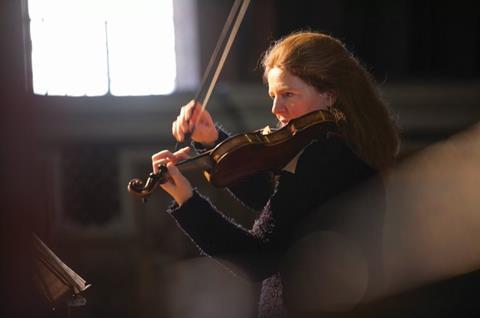Marking the days of the festive season, The Strad presents twelve quotes from the archive. Here, violinist Rachel Podger describes the pain and rewards of scordatura tuning

In this extract from The Strad December 2015, Baroque specialist Rachel Podger talks to Philip Clark about Biber’s Rosary Sonatas, and the enigma of scordatura tuning
‘Scordatura takes over completely, and as an interpreter you have to give yourself over to this painful journey. We’re not absolutely certain where Biber himself would have played these pieces. We do know that when he was living and working in Salzburg, the prince archbishop of the city was very devoted to his faith and encouraged sacred sessions within the Aula Academica, where 15 paintings of the rosary are housed. Worshippers would devote themselves in different ways: in a physical way with rosary beads, and visually by looking at the pictures – and perhaps Biber played his pieces standing in front of the pictures to add a musical dimension to the ritual of devotion.
‘Learning the pieces requires you to go through stages. First you have to figure out the notation, which is very confusing. There is absolutely no point, I discovered, in trying to second-guess what you should be playing. You simply have to fulfil Biber’s instructions and accept that, for instance, this is a first finger but, because the violin has been retuned, it doesn’t actually sound like a first finger – the notes on the page don’t necessarily correspond with what you hear. This rather analytical approach to learning the piece taught me how much I usually play off the page. As a Baroque violinist, you improvise and ornament and anticipate what might happen harmonically because you’re familiar with the overall structure, but now I couldn’t employ that approach – at all. But get past this first stage, and the music begins to override the technical challenges, which is a kind of transcendence in itself.’
To read the full interview with Rachel Podger in the December 2015 issue of The Strad, click here to log in or subscribe.
Read: Ida Haendel on Bach’s Chaconne
Read: Truls Mørk on working with Lutoslawski








































No comments yet